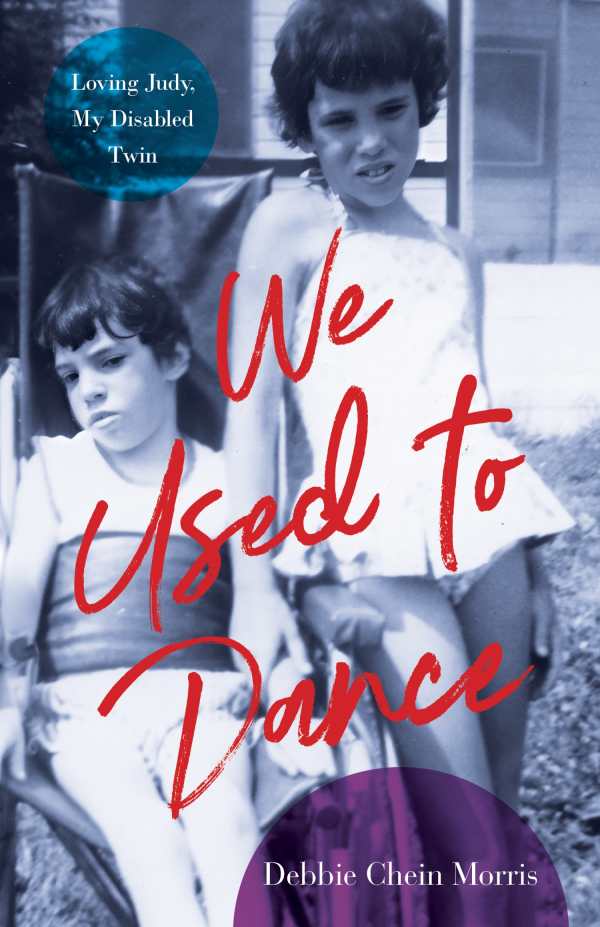We Used to Dance
Loving Judy, My Disabled Twin
In the emotive, empathetic memoir We Used to Dance, a family has to let go of one of its beloved members.
Debbie Chein Morris’s loving memoir We Used To Dance is about the emotional and relational difficulties of caring for a physically disabled sibling—and the gut-wrenching decisions that a family’s members made for her.
Judy had cerebral palsy and a deteriorating spine. As she got older, her family members had to decide whether placing her in a nursing home would be her best option. For Morris, Judy’s twin sister, the decision took an emotional toll. Judy had been her friend as well as her sister; they’d laughed, argued, and danced together as children. Thus, along with caring for her aging mother and feeling frustrated with her other siblings regarding Judy, Morris processed and navigated the difficulties of trying to do what was best for her family—often on her own.
Morris is a candid narrator whose feelings of guilt and frustration over placing Judy in a care facility are made acute. Indeed, throughout its pages, the book does an able job of detailing her hopes, fears, and questions. Making decisions for Judy took on cataclysmic significance in Morris’s adult life. And interspersed throughout the book’s coverage of the decision itself are cherished memories from the past, fleshing out the details of Morris’s relationship with her other siblings and mother in a way that clarifies their internal thoughts and emotions too—if sometimes to excess. Conversations are recorded in a screenplay format, and the complexities, nuances, and conflicts of such exchanges are somewhat flattened in the process.
Each chapter ends with a journal entry by Morris, used to further reflect on the difficult time during which she and her family were making plans for Judy. These entries also cover her emotional, psychological, and relational struggles—in a way that sometimes repeats what the chapter covered before them. Indeed, some function as redundant summaries. Further, the prose is direct, literal, and sometimes passive; in tandem with the book’s excessive explanations, these stylistic habits lessen its emotional impact. Still, Morris’s story is both poignant and thorough, recording a challenging period in her life in an expansive manner and reflecting on the inevitable nature of loss in emotional and engaging terms.
In Debbie Chein Morris’s emotive, empathetic memoir We Used to Dance, a family has to let go of one of its beloved members.
Reviewed by
N.T. McQueen
Disclosure: This article is not an endorsement, but a review. The publisher of this book provided free copies of the book and paid a small fee to have their book reviewed by a professional reviewer. Foreword Reviews and Clarion Reviews make no guarantee that the publisher will receive a positive review. Foreword Magazine, Inc. is disclosing this in accordance with the Federal Trade Commission’s 16 CFR, Part 255.

